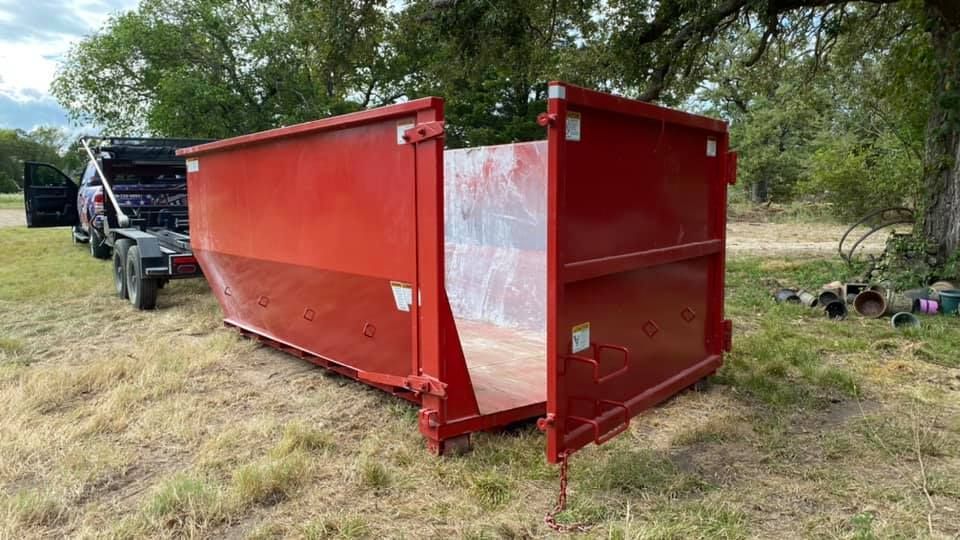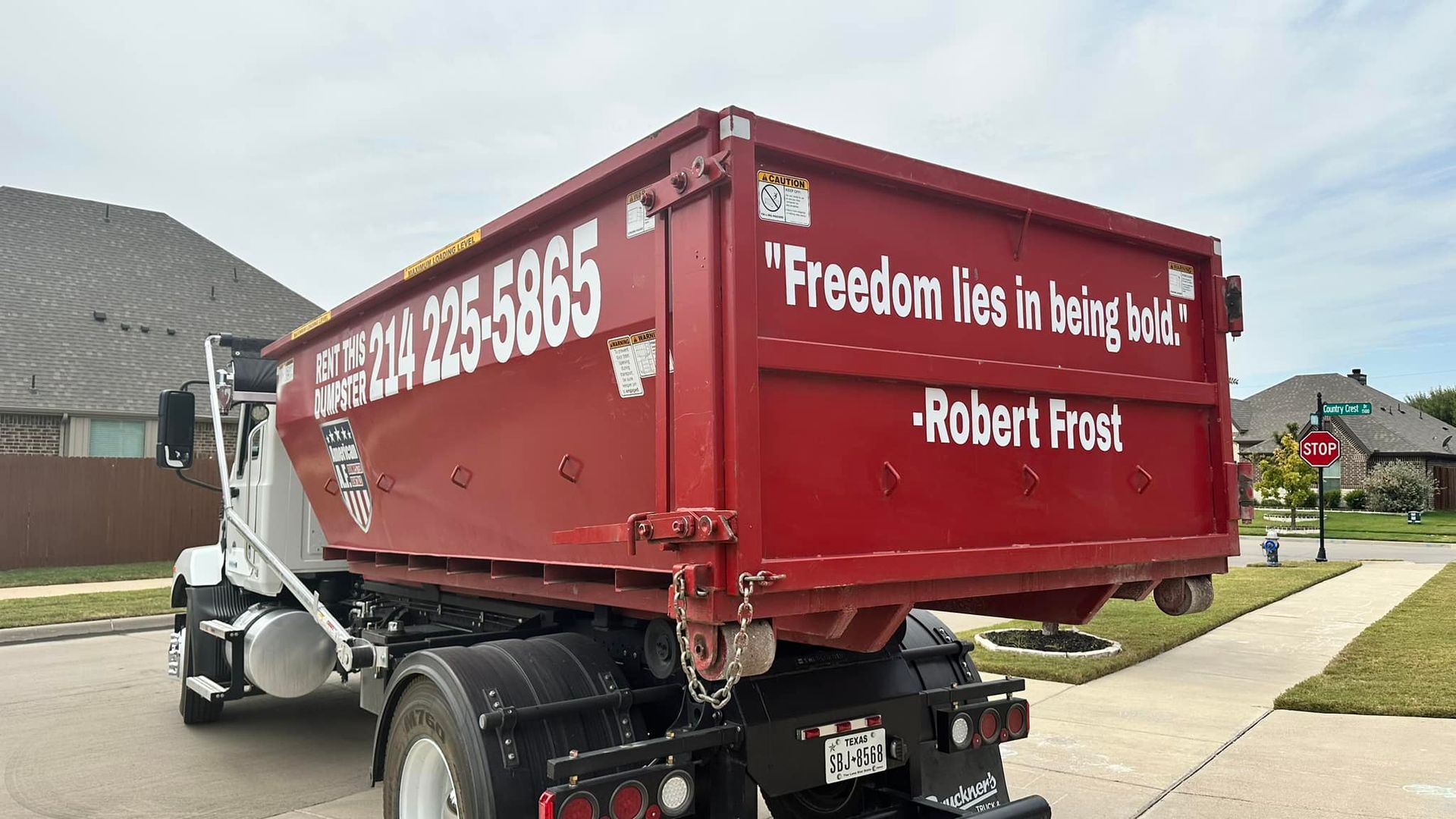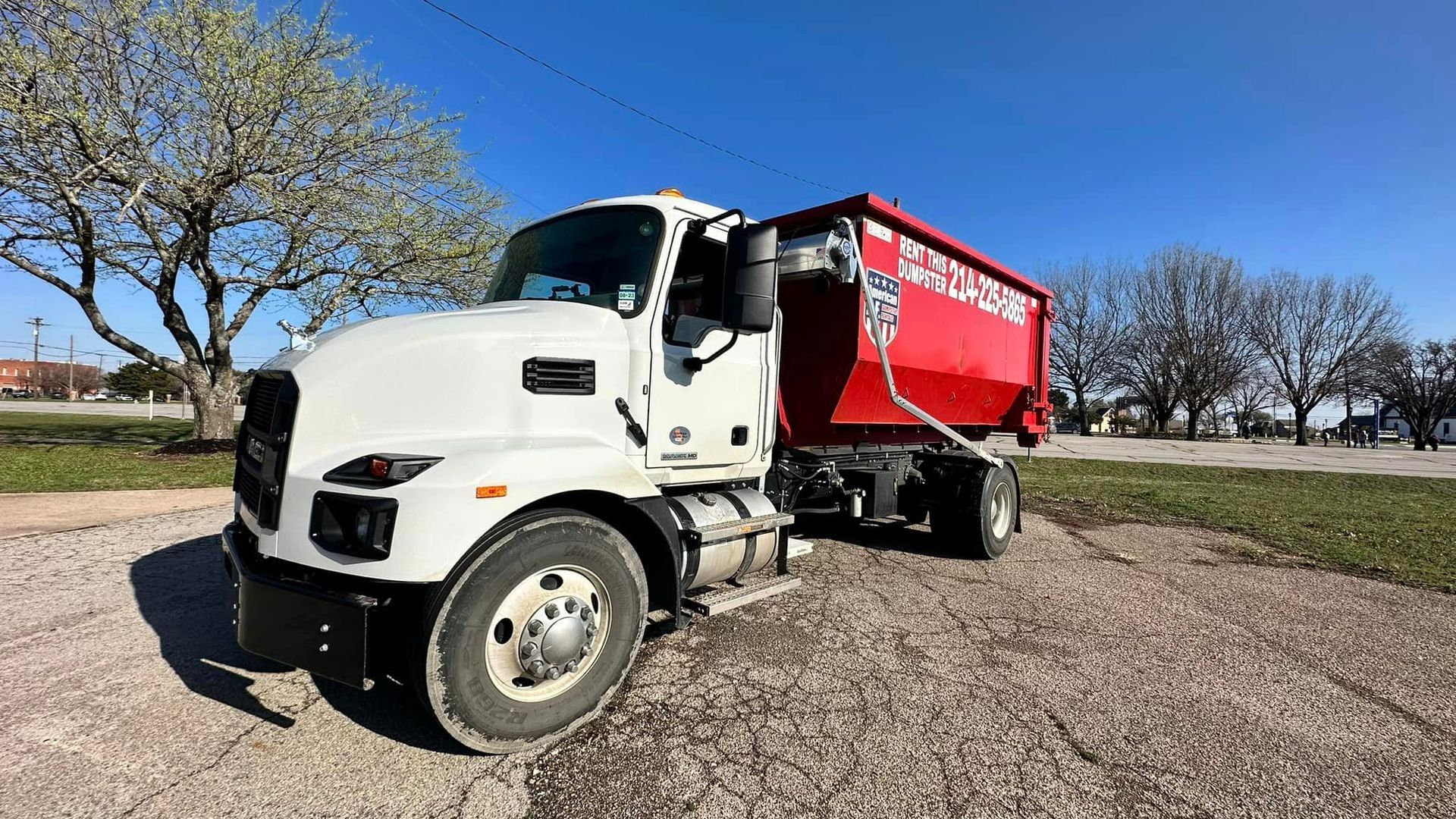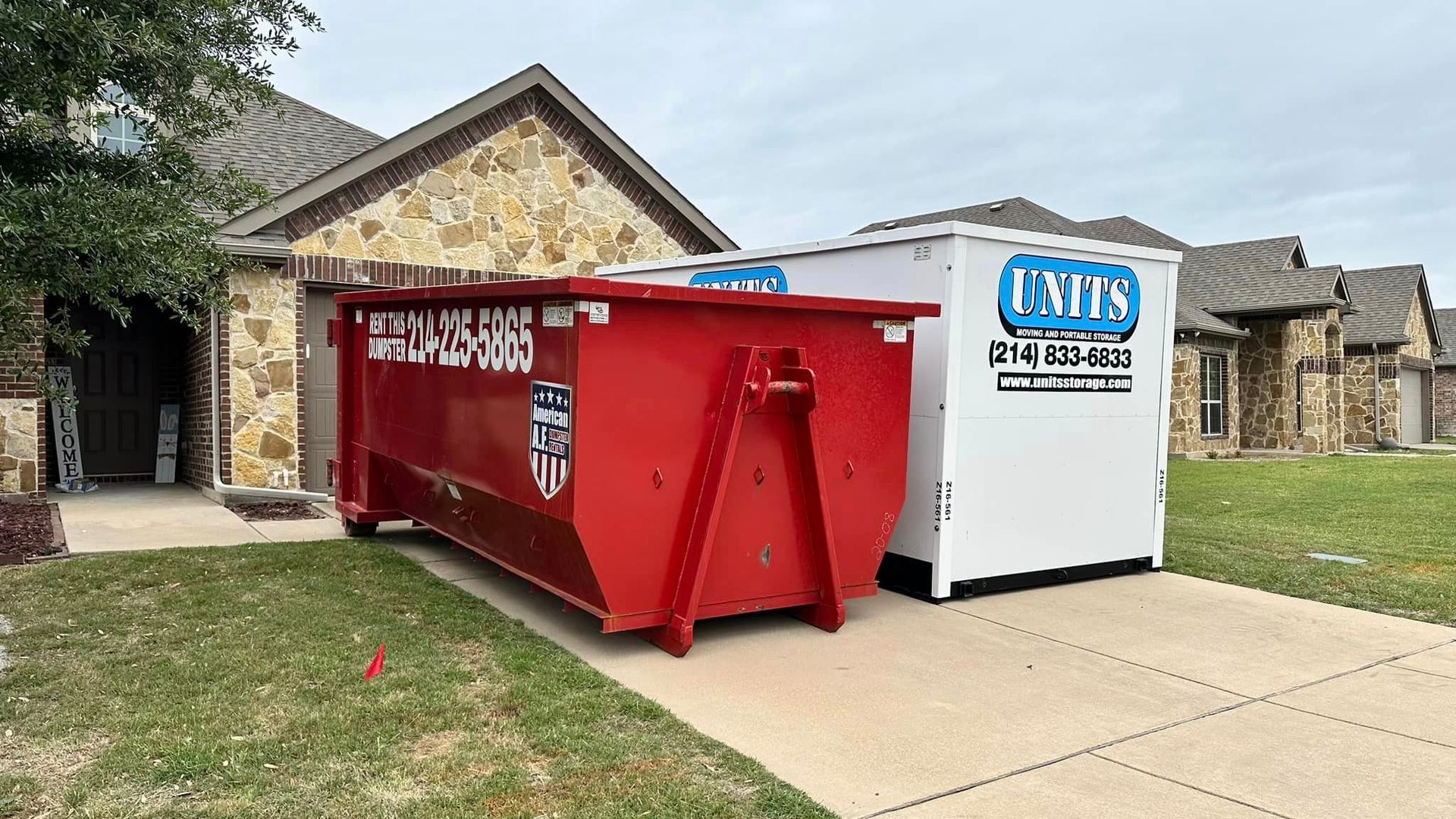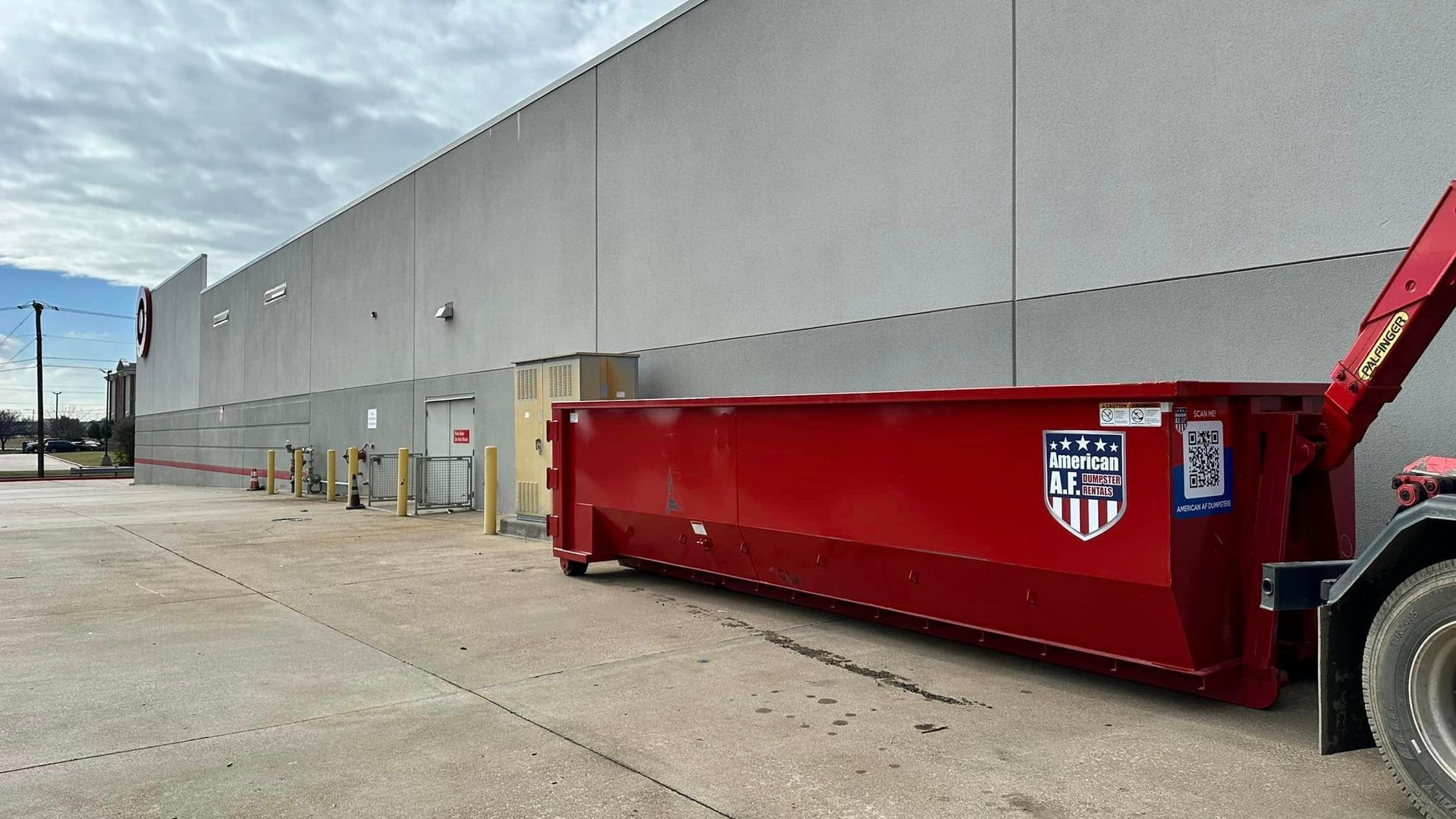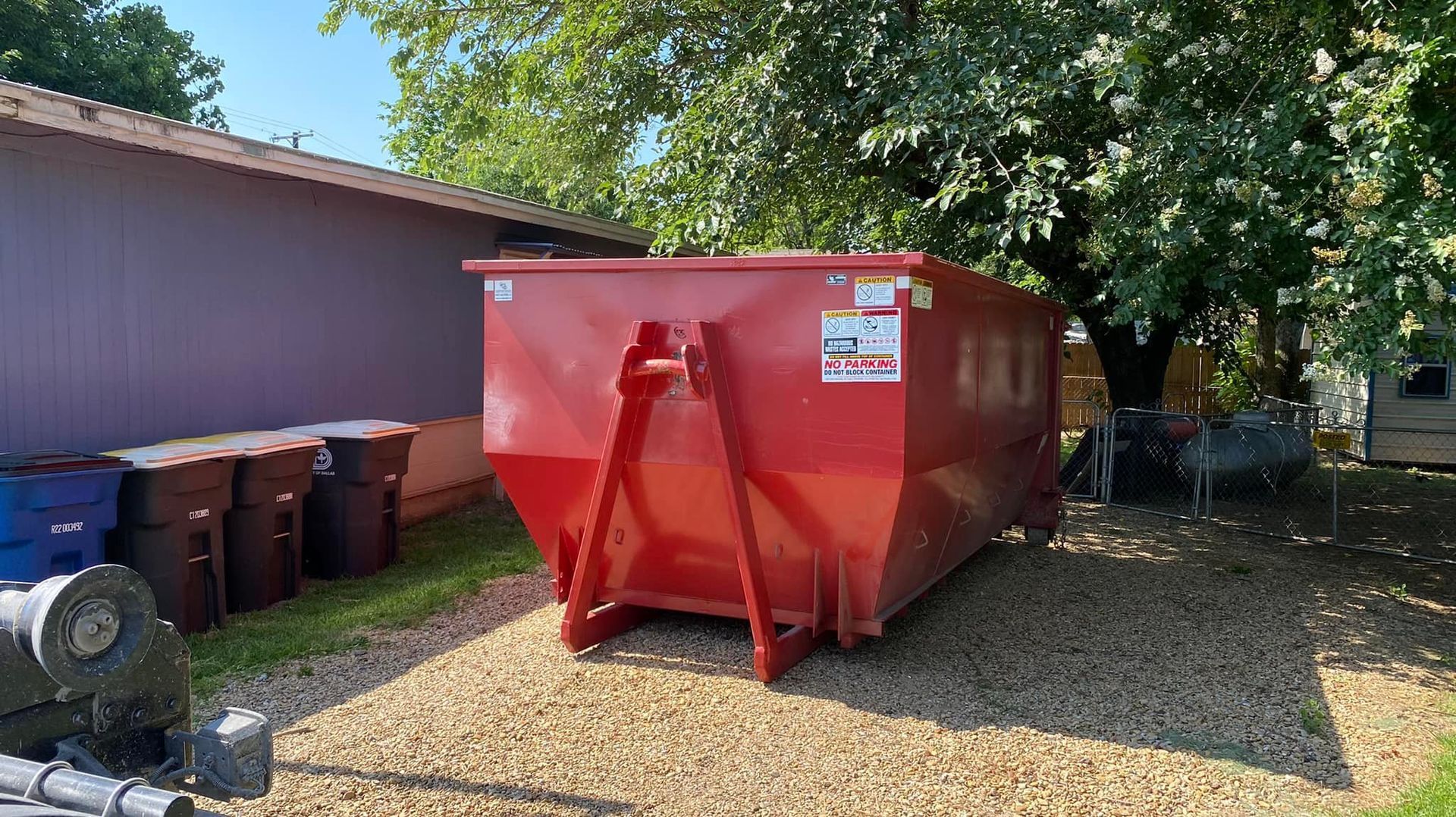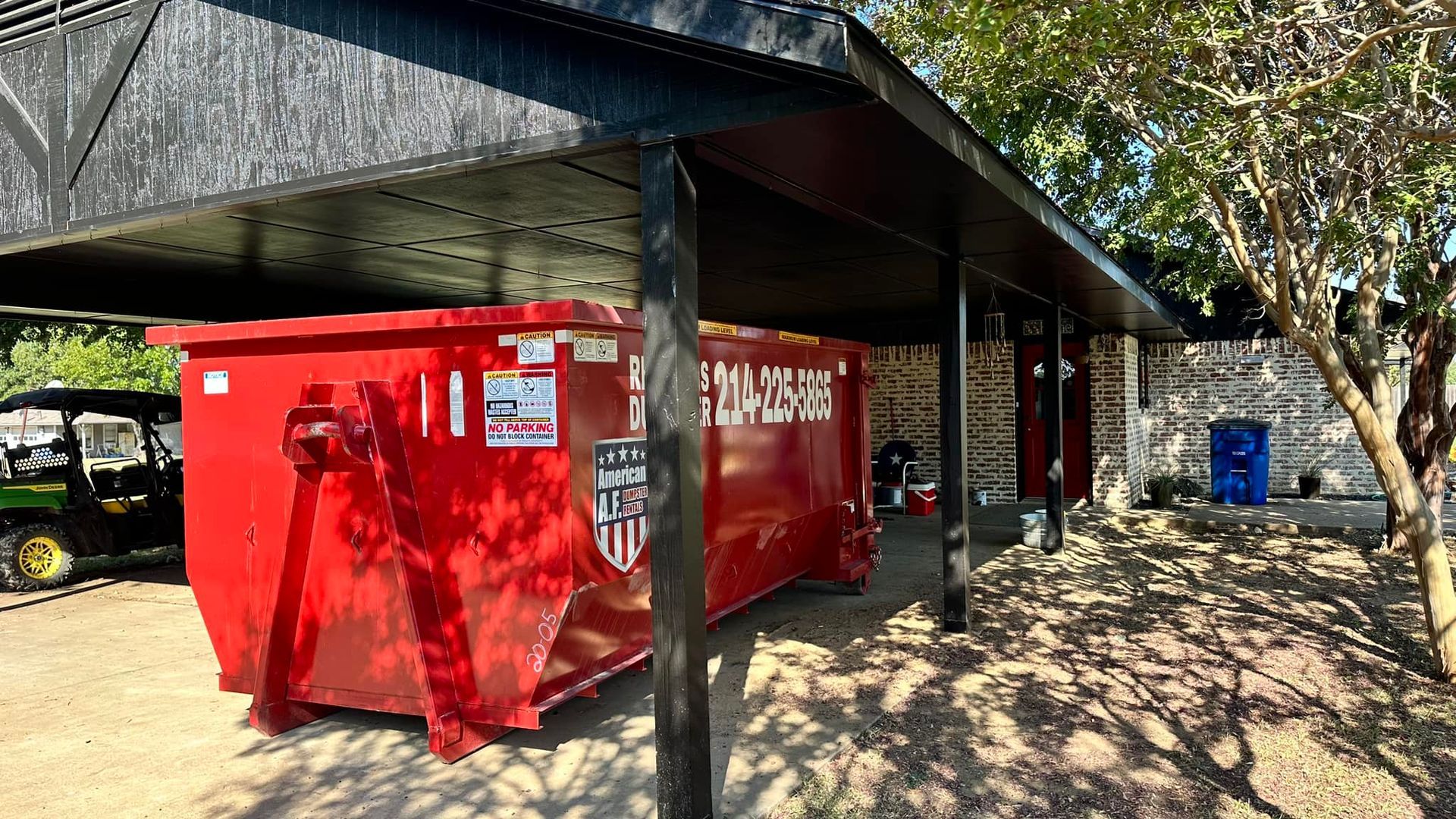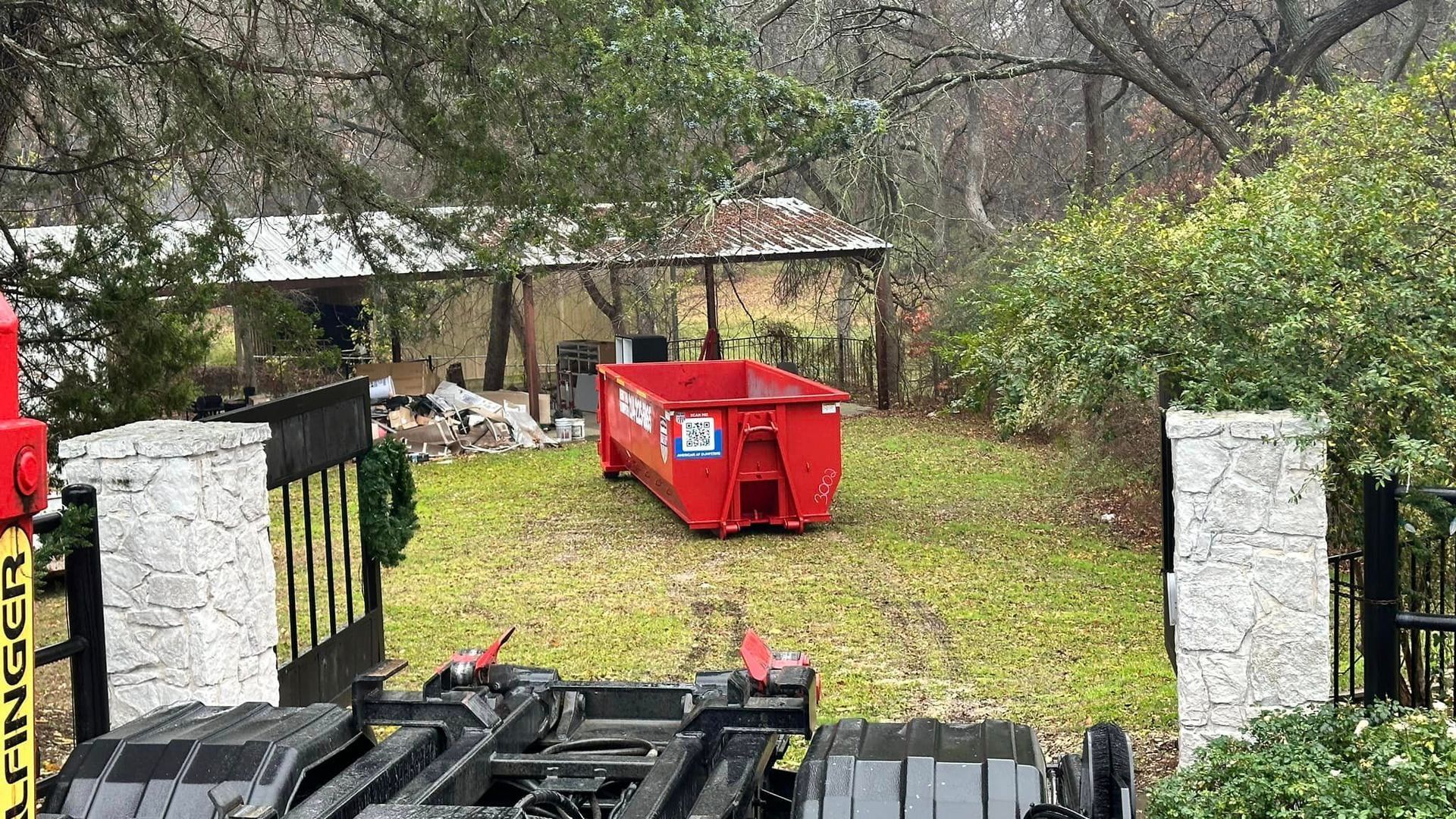Will A Dumpster Damage My Driveway?
Will A Dumpster Damage My Driveway?
One common concern for homeowners considering a roll-off dumpster rental is whether it will damage their driveway. This blog aims to address these concerns and guide you through the best way to utilize rental services without causing unnecessary damage to your asphalt or concrete driveway.
Understanding Dumpster Types and Their Impact
Types of Dumpsters
There are various dumpsters, such as roll-off containers, rubber-wheeled trailer dumpsters, and trailer dumpsters. The weight of a dumpster varies depending on its type, with some designed specifically for heavy items and large projects.
For a full breakdown of dumpster types and what they’re used for, please read ‘The Different Types of Dumpster Styles’.
Dumpster Weight and Driveway Surfaces
The weight of the dumpster is a critical factor in determining the risk of driveway damage. Concrete driveways typically withstand more weight than asphalt driveways. The type of dumpster service you choose, whether it’s for residential or construction sites, can make a significant difference in preventing surface damage.
To learn more about the different types of driveway surfaces, check out this resource, ‘Top 5 Driveways That Last the Longest.’
Considerations for Different Materials and Dumpster Types
Asphalt surfaces require special attention when placing dumpsters. Steel wheels of roll-off dumpsters can cause indentations or even cracks, especially in warm weather. Opting for a rubber-wheeled trailer dumpster can be a great way to mitigate this risk.
The kind of waste being disposed of in the rental dumpster should also influence your choice. Heavy materials like concrete or brickwork can increase the total weight significantly, leading to a higher risk of driveway damage.
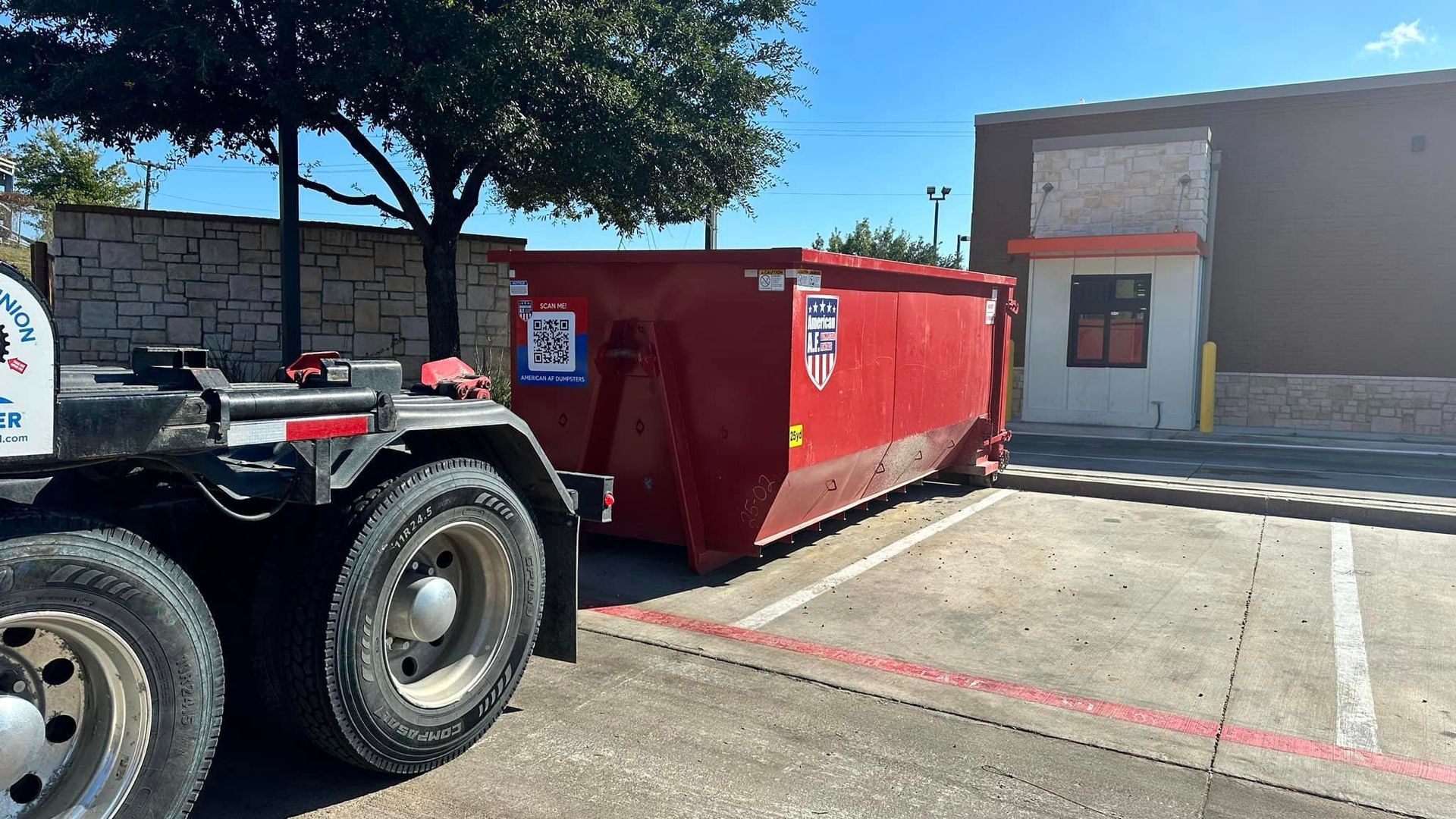
NEED A DUMPSTER?
Choosing the Right Dumpster Service
Selecting a Reputable Dumpster Rental Company
Selecting a reputable dumpster rental company is crucial. Look for dumpster companies known for their quality service and customer satisfaction. A reputable company will guide you through the step of the process, ensuring that you get the correct size dumpster and understand the weight limit.
Necessary Precautions for Driveway Protection
Taking proper precautions is essential. This includes choosing dumpsters with rubber wheels to reduce the risk of surface damage. Also, consider the dumpster's location on your driveway, ensuring it's on a level surface, preferably in a shaded area or on level concrete to avoid soft ground issues.
Legal Requirements and Long-Term Rentals
Acquiring the right dumpster permit is a crucial step of the process, especially for extended rental periods or for specific types of waste. Dumpster rental companies should provide guidance on obtaining these permits.
For construction projects or large clean-outs that require a dumpster for an extended period, consider the total weight and potential type of damage to your property over time.
For tips about how to choose the best dumpster rental service, please read this great blog ‘How to Choose a Dumpster Rental Company’.
Preparing Your Driveway for a Dumpster
Assessing Your Driveway
Before the dumpster arrives, inspect the surface of your driveway. Look for pre-existing cracks or soft spots, especially in hot asphalt driveways. Identify the best place for the dumpster, considering factors like accessibility and the weight of the container.
Preventive Measures to Avoid Damage
To ensure proper protection, use rubber mats or wood boards under the feet of the dumpster. This helps distribute the weight evenly and prevents stress fractures, especially when placing heavy dumpsters.
Additional Preparatory Measures
For an asphalt driveway, a wheel stop or a set of steel feet can provide extra protection and stability for the dumpster. This is a good idea, particularly for larger dumpsters.
If your driveway has a significant amount of trash or debris, it’s a good idea to clear it out before the dumpster arrives. This ensures a safer and more efficient trash removal process.
For a full breakdown on how to prepare your driveway for a dumpster delivery, check out this article, ‘4 Tips for Protecting Your Driveway When Using a Dumpster’.
Dumpster Placement and Usage Tips
Placement Strategies
Finding the best location for the dumpster is crucial. It should be placed in a larger area with a clear path for the weight of the truck to maneuver without causing structural damage. For residential dumpster rental, consider the driveway surface and the possibility of damage from heavy objects.
Efficient Usage
When loading the dumpster, distribute the weight evenly. Avoid overloading one side and ensure heavy appliances and materials are placed strategically. Respect the fill line to prevent unnecessary weight and adhere to the weight limit.
Managing Dumpster Weight and Contents
The right way to manage the total weight in a dumpster is to evenly distribute heavy materials. For a heavy dumpster, it's essential to fill it in layers to avoid uneven weight distribution, which can cause type of damage to your driveway.
Larger dumpsters might be necessary for significant amounts of trash, but remember that the larger the dumpster, the greater the risk to your driveway. Always balance the size with the anticipated amount of waste.
Legal and Safety Considerations
Permits and Regulations
Check with local authorities for any required dumpster permits, especially for large projects or if the dumpster needs to be placed on the street. Each city may have different regulations for street permits and construction dumpsters.
Safety and Risk Management
Be aware of the types of damage that can occur, including property damage and structural damage. The risk of driveway damage can be minimized by choosing the correct size container and avoiding placing it on uneven surfaces.
Permits for Street Placement and Extended Rentals
If your driveway isn’t suitable for a dumpster, you might need to place it on the street. This typically requires a street permit from local authorities.
For projects that require a dumpster for an extended period, ensure you understand the specific regulations and possible risks associated with prolonged placement, especially regarding the type of waste and total weight.
To learn more about dumpster permits and when they may be required, we suggest reading, ‘Dumpster Permits: How to Get One When You Need It’.
After the Dumpster Rental
Post-Rental Inspection and Cleanup
After the dumpster rental period, conduct a thorough inspection of your driveway. Look for any new cracks or pieces of trash that might have been left behind. Ensuring the area is in good condition is an excellent way to end the rental process.
Evaluating the Experience
Reflect on the experience with the dumpster rental service. A successful project involves not just the removal of trash but also maintaining the integrity of your property. Share your feedback with the dumpster company to help them improve their services.
Long-Term Impact and Final Checks
After the removal of the dumpster, especially if it was a heavy dumpster or was placed for an extended period, inspect your driveway for any potential long-term impacts like indentations on the asphalt surface or stress fractures.
Ensure that the type of damage, if any, is documented and discussed with the dumpster rental company. This could be important for future reference or if any disputes arise.
FAQS
Key Takeaways: Will A Dumpster Damage My Driveway? - 2024 Guide
Understanding Dumpster Types and Their Impact
- Different types of dumpsters, including roll-off containers and rubber-wheeled trailer dumpsters, have varied impacts on driveways.
- The weight of the dumpster, especially with heavy items, is a significant factor in potential driveway damage. Concrete driveways typically endure more weight than asphalt driveways.
Importance of Choosing the Right Dumpster Service
- Selecting a reputable dumpster rental company ensures you get the right guidance and service for your specific needs, including the correct dumpster size and understanding weight limits.
- Proper precautions, like using dumpsters with rubber wheels, are crucial to protect your driveway surface. The placement of the dumpster should be on a level surface to minimize risk.
Legal Requirements and Considerations for Long-Term Rentals
- Obtaining the appropriate dumpster permit is essential, particularly for extended rental periods or specific waste types.
- For long-term construction projects or large clean-outs, it's important to consider the total weight and potential for driveway damage over time.
Preparing Your Driveway for a Dumpster
- Conduct a thorough assessment of your driveway, checking for pre-existing issues and identifying the best placement spot.
- Use protective measures like rubber mats or wood boards under the dumpster to distribute weight and prevent damage, especially useful for heavy dumpsters.
Efficient Dumpster Placement and Usage
- The placement of the dumpster should allow for easy access and minimize the risk of structural damage to the driveway.
- Manage the weight distribution within the dumpster carefully to prevent uneven weight distribution and potential driveway damage.
Legal and Safety Considerations
- Always check with local authorities regarding necessary permits, especially for street placement or large projects.
- Be mindful of safety and the risks of various types of damage, and choose the correct size container to minimize risk.
Post-Rental Inspection and Evaluation
- After the rental period, inspect your driveway for any new damage or leftover debris.
- Evaluate your experience with the dumpster rental service, considering both the efficiency of trash removal and the condition of your driveway post-rental.
Addressing Long-Term Impacts
- For extended rentals or heavy dumpsters, check for long-term impacts like indentations or stress fractures on your driveway.
- Document any type of damage and communicate with the rental company for future reference or in case of disputes.
These key takeaways offer a comprehensive guide to homeowners looking to rent dumpsters, focusing on minimizing the risk of driveway damage while ensuring efficient waste management.

